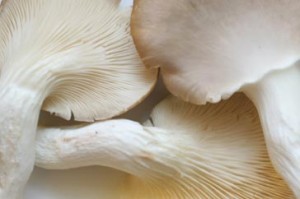
More evidence that low-calorie sweeteners are bad for your health
Studies show that artificial sweeteners can raise the risk of hypertension, metabolic syndrome, type 2 diabetes and heart disease, including stroke.

Natural Health News — Eating more mushrooms could help reduce blood sugar levels after a meal benefitting both healthy people and those with diabetes, a recent study has found.
Sri Lankan researchers studied the effects of two types of mushroom: the American oyster mushroom (Pleurotus ostreatus) and abalone mushroom (Pleurotus cystidiosus) and published their results in the journal Phytotherapy Research.
They recruited 88 healthy people and randomly assigned them to one of four groups: two control groups, and two mushroom groups receiving either P. ostreatus or P. cystidiosus preparations at a dose of 50 mg/kg/body weight for two weeks. In addition, the researchers also assigned 14 type-2 diabetics to receive single 50 mg/kg/body weight doses of the mushroom preparations.
Better glucose control
During the study they performed two types of blood glucose test measuring fasting and postprandial (post-0meal) levels. High levels of glucose after fasting are a sign of pre-diabetes and can be a risk factor for heart disease even in those who are not diabetic, while the postprandial test can assess if the body is producing the right amount of insulin in response to food intake.
Results for the healthy volunteers indicated that P. ostreatus significantly reduced fasting and postprandial glucose levels by 6.1% and 16.4%, respectively, while P. cystidiosus significantly reduced fasting and postprandial glucose levels by 6.4% and 12.1%
The mushrooms preparations were also associated with improvements in fasting and postprandial glucose levels in the diabetics, while insulin levels increased.
A functional food
According to the World Health Organization (WHO), diabetes affects over 220 million people globally and the consequences of high blood sugar kill 3.4 million every year. If such statistics weren’t scary enough, the WHO is predicting deaths to double between 2005 and 2030.
The total costs associated with the condition in the US alone are thought to be as much as $174 billion, with $116 billion being direct costs from medication, according to 2005-2007 American Diabetes Association figures.
The researchers speculate that the mushroom extracts may influence the activity of an enzyme called glucokinase, an important sensor of glucose levels in the body.
In fact both mushrooms were associated with increases in glucokinase (GK) secretion, they added, and decreases in glycogen synthase kinase (GSK), which promotes the formation of glycogen in the liver from glucose (and thereby lowering glucose levels).
“P. ostreatus and P. cystidiosus exerted significant hypoglycaemic effect in healthy volunteers challenged with glucose and in type-2 diabetic patients on diet control,” wrote the researchers. “The mushrooms are neither hepatotoxic [toxic to the liver] nor nephrotoxic [toxic to the kidneys]. Hence, this study confirms the suitability of P. ostreatus and P. cystidiosus as a functional food for diabetic patients.”

Please subscribe me to your newsletter mailing list. I have read the
privacy statement